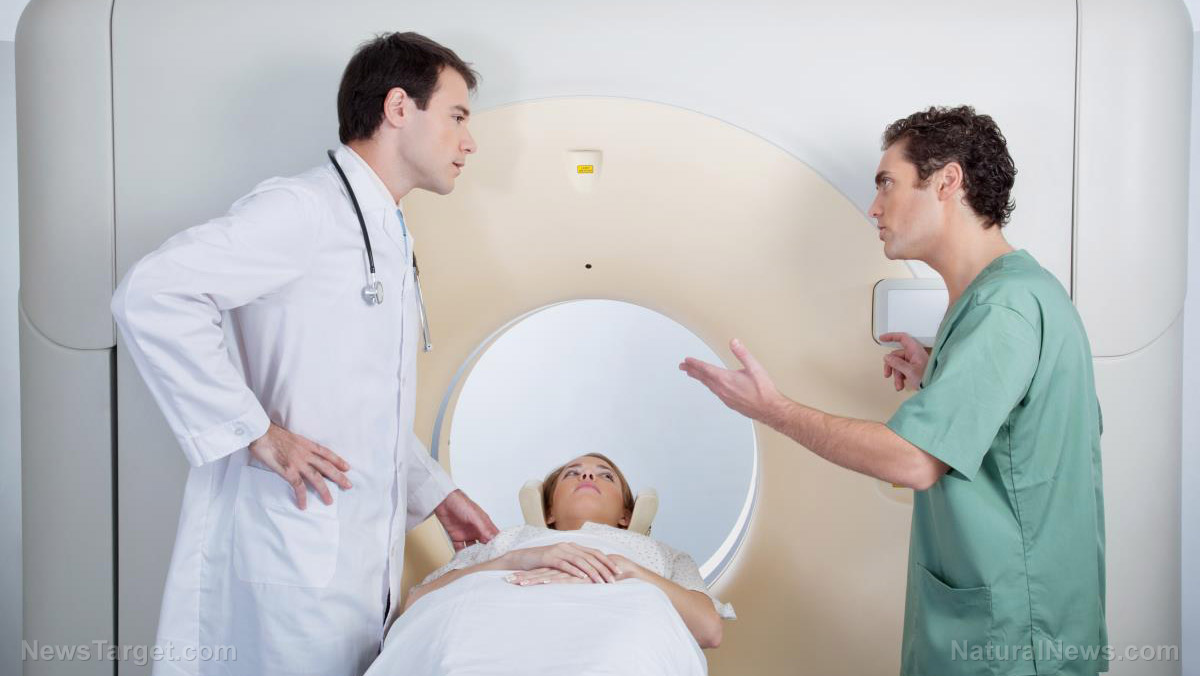Even simple exercises like stretching could slash Alzheimer’s risk and boost brain health, studies show
05/01/2025 / By Cassie B.

- Regular exercise, even light activities like stretching, can sharply reduce Alzheimer’s risk and slow cognitive decline.
- Studies show low-intensity workouts are as effective as high-intensity ones in protecting brain health.
- Just three hours of weekly exercise stabilizes cognitive function and reduces brain shrinkage in critical areas.
- Short bursts of intense activity, like brisk walking, can cut dementia risk by up to 40%.
- Social engagement and enjoyable activities improve adherence and amplify exercise’s cognitive benefits.
Regular exercise — even light workouts like stretching or balance training — could significantly reduce the risk of Alzheimer’s disease and slow cognitive decline, according to groundbreaking new studies. Researchers from leading institutions including the University of North Carolina, Wake Forest University, and Norway’s NTNU University reveal that physical activity, regardless of intensity, strengthens brain health, offering hope for older adults facing memory loss. Their findings highlight the urgency of prioritizing exercise in preventing diseases linked to aging, challenging assumptions that vigorous workouts are necessary to protect the brain.
Any movement matters
A landmark study from the EXERT trial involving nearly 300 older adults with Mild Cognitive Impairment (MCI) found that low-intensity exercises like stretching, balance training, and light resistance work were as effective as moderate-to-high-intensity aerobic activity in preventing brain shrinkage and cognitive decline.
Participants who exercised as little as three hours weekly showed stable cognitive function, with reduced atrophy in brain regions critical for decision-making and memory. “Exercise not only slowed cognitive decline but also appeared to slow underlying brain changes commonly associated with Alzheimer’s risk,” said Patrick J. Smith, PhD, of the UNC School of Medicine.
The EXERT trial’s principal investigator, Laura Baker, PhD, emphasized that accessibility is key. “Any exercise, if done regularly, could have benefits for cognition,” she said, noting that older adults struggling with high-intensity workouts can still protect their brains. The study’s results contradict previous recommendations that prioritized intense activity, showing low-intensity regimens like tai chi or gentle resistance training offer comparable neuroprotective effects. “The exercise you should do is the one that you’ll actually do,” Smith added.
Even brief bursts of high-intensity activity, like brisk walking, can slash dementia risk by up to 40%, according to Norwegian researchers. Their analysis in The Lancet found that short, intense sessions — such as 10 minutes of fast-paced movement — stimulate blood flow, reduce inflammation, and enhance neuroplasticity. Lead author Atefe R. Tari stressed, “It’s never too late to start… Exercise is cheap, accessible, and has no side effects.” These findings challenge public health guidelines, urging policymakers to promote “microtraining” as a practical tool for aging populations.
Social connections and joy fuel long-term success
To ensure adherence, experts recommend pairing exercise with social engagement. Baker encouraged partnering with a “fitness buddy” or joining community-based programs like YMCA classes. “Social environments add to the benefits,” she said, noting such support helps those with memory issues stay consistent. Dr. Helen Lavretsky of UCLA advised choosing joyful activities: “Dance, hike, or do anything that lifts your spirit. Add life to years, not just years to life.”
Exercise is the ultimate preventive medicine
Study after study converges on a singular truth: physical activity is one of the few proven tools to combat neurodegenerative diseases. The EXERT trial’s stable cognitive outcomes and the Norwegian team’s emphasis on microtraining all reinforce exercise’s role as a multifaceted shield against aging’s toll. Dr. Tari summarized, “Physical activity appears to be one of the most promising measures we have to prevent cognitive decline and dementia,”
Despite robust evidence, only 30–50% of adults meet basic activity guidelines. Researchers now push for updated public health strategies, like Norway’s proposed microtraining recommendations, that emphasize accessibility and intensity over duration. Such shifts could empower millions to take control of their cognitive futures without overcomplicating their routines.
In the face of rapidly rising dementia rates—affecting 5.3 million Americans and expected to triple by 2050—exercise offers a low-cost, widely available solution tied to measurable brain benefits. As science deepens understanding of nutrition and neuroprotection, physical activity remains an unsung hero in the fight against cognitive decline. For now, the takeaway is clear: lace up your shoes, choose activities you enjoy, and move… because your brain depends on it.
Sources for this article include:
Submit a correction >>
Tagged Under:
aging secrets, alternative medicine, Alzheimer's disease, brain function, brain health, cognitive decline, dementia, discoveries, exercise, fitness, health science, longevity, natural cures, natural health, natural medicine, prevention, real investigations, research
This article may contain statements that reflect the opinion of the author





















